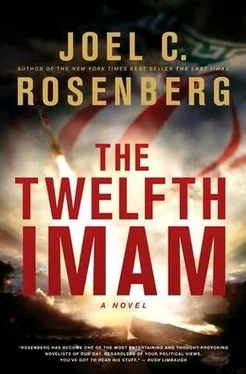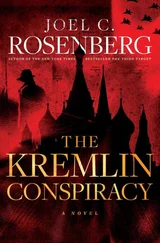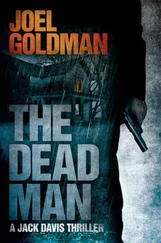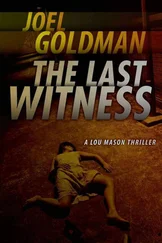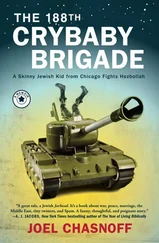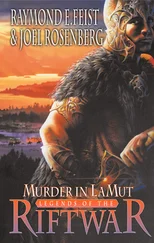As David pondered that, it occurred to him that there was a growing sense in cultures around the world that the end of days just might be approaching and that with it was coming a final, momentous clash between good and evil. Preachers and rabbis and imams and even environmentalists were saying with increasing frequency and intensity that “the end is near.” But rather than laugh them all off as nuts, people seemed to be eating up the message. Even Hollywood was cashing in, making millions from apocalyptic movies.
What did it all mean? David had no idea. But in the privacy of his thoughts, he, too, feared the world was speeding recklessly toward the edge of the cliff. The longer he worked for the Central Intelligence Agency and the more classified information he gained access to, the deeper his fears became. And if Iran got the Bomb, or-God forbid-if Osama bin Laden did, something told him the implications would be far worse than even Langley’s most dire predictions.
Which prompted another thought.
He had always told himself that he had joined the CIA to destroy radical Islam, to avenge the death of nearly three thousand Americans on 9/11, to avenge the death of Claire Harper, and perhaps even to show Marseille Harper how much he loved her. It was all true, but it had become more than that. He had come to fear that the events of September 11, 2001, would pale in comparison to the death and destruction that would be wrought if the world’s most dangerous extremists gained possession of the world’s most dangerous weapons. He had to stop them. He had to try, anyway. Most Americans had no idea the threats their country faced. But he did, and he’d never be able to live with himself if he didn’t do everything in his power to save people’s lives.
David turned on the lights. He was covered with sweat. What he really needed was a good, stiff drink. But this was Tehran. The minibars weren’t exactly stocked with Smirnoff and Jack Daniel’s. Come to think of it, he realized, his room didn’t even have a minibar.
He got up, went into the bathroom, and opened a bottle of water. Then he turned on the shower-good and cold-stripped down, and stepped behind the plastic curtain.
As the water poured down his body, he half expected to be struck by lightning or felled by a massive heart attack. End of the world or not, if there was a God, and if it really was the God of the Qur’an, then he knew he was doomed. In college, David had faithfully attended a Shia mosque in Munich, studied the Qur’an, and become a part of the Muslim community, just as Zalinsky had required. He knew what he was supposed to believe. But he didn’t. Plain and simple.
Shivering, David finally turned off the ice-cold water, wiped himself down, wrapped up in a towel, and stepped in front of the mirror. His glasses had been replaced by contact lenses years ago. His braces were long gone. He was taller than his brothers now, taller even than his father. But all that was superficial. Who was he now, really? What was he becoming? Where was he going?
He left the bathroom and paced around the hotel room. He pulled the drapes back a bit and stared out at the quiet streets of Tehran. He wondered what Marseille was doing at that moment, what she was thinking. Was she upset that he had never responded? Was she angry with him? He hoped not. He wished he could call her right then. She’d had enough heartache in her life. He didn’t want to be the cause of any more.
He thought back to the note she’d sent him and reread a particular line in his mind’s eye.
I wondered if you might like to get a cup of coffee together, or something… It’s been a long time… and there are things to say.
He wondered what she meant by “there are things to say.” It was an interesting turn of phrase-old-fashioned, almost. She was right, of course, but it didn’t sound like a person casually suggesting coffee simply to catch up on old times. She had specific things to tell him or ask him. But what? As he thought about it further, he realized she hadn’t just used the phrase once. She had actually used it twice-or at least a variation of it.
If you can’t get together, or if you don’t want to, I’ll certainly understand. And I’m sorry for rambling on like this. I didn’t mean to. I just meant to say… it would be good to catch up and tell you things I should have said earlier, if you’re okay with that.
So she didn’t have questions for him. At least, that’s not what she was signaling. She had things on her heart she wanted-needed-to say directly to him, in person, not on paper. Why would he not be “okay with that”?
Was she talking about why she’d never written back to him? Maybe there was more to why she and her father had moved to Portland. Or was it something to do with religion? She had told him that her friend’s wedding was going to be held at an “awesome” church. She had even invited him to go with her to the church while she was in town, even though she must know he was an avowed agnostic. Maybe she thought he had changed. It sounded like she had. Was that what this was all about?
Trying to clear his head, David turned on the television and started flipping through the channels. State-run news. Football (soccer). More state-run news. More football. Some cleric teaching from the Qur’an. Some lame black-and-white movie from the 1950s. It was all mind-numbingly boring. He turned off the set and lay back on the bed, staring at the ceiling fan whirring above him.
He let his mind drift back to the little A-frame in Canada. All these years later, he could still feel her lips on his, the warmth of her body against his own. She’d been so nervous and yet so trusting, and she had held him so tightly. And what had she asked him? Whether he believed in God. Whether he believed in Jesus. Whether he thought God was real and loving and answered prayer. He hadn’t known what to say back then. And it depressed him to think he still didn’t. He had no answers, and given the risks he was taking-and the very real and growing possibility that he could be captured and killed for being an American spy in Tehran-the thought of not knowing the truth about God and the afterlife terrified him.
If there was one thing he knew from studying the Qur’an, it was that Islam was a works-based religion. If his good works didn’t outweigh his bad works when he died, then he was damned for eternity.
He recalled reading Sura 23:102-104 in college. The text was crystal clear in his memory: “Those whose scales of good deeds are heavy, they are prosperous, while those whose scales are light, they will be those who have ruined their own selves, in hell abiding. The fire will scorch their faces, their lips being displaced and their jaws protruding.”
The problem, as David saw it, was that Islam provided no way for a Muslim to assess how he or she was doing throughout his or her life. There was no Web site to log on to and check daily scores. There were no quarterly report cards. There were no annual performance reviews. How, then, could anyone know for certain whether he would spend eternity in paradise or in punishment? How could anyone find the assurance of salvation that every thoughtful soul seeks before death?
The brutal truth was, no one could. That was what terrified David most. He had lied to almost everyone he had ever known. He had been unkind to people he loved. He had been ungrateful to people who had treated him well. He didn’t stay in touch with his parents. He didn’t stay in touch with his brothers. His professional life required that he be a liar and, more recently, a hypocrite-playing the part of a religious man but denying Islam’s truth and power. And then there were his secret sins, the ones he dared not confess. The more he cataloged his bad deeds, the worse he felt, and he had no idea where to turn.
Читать дальше
